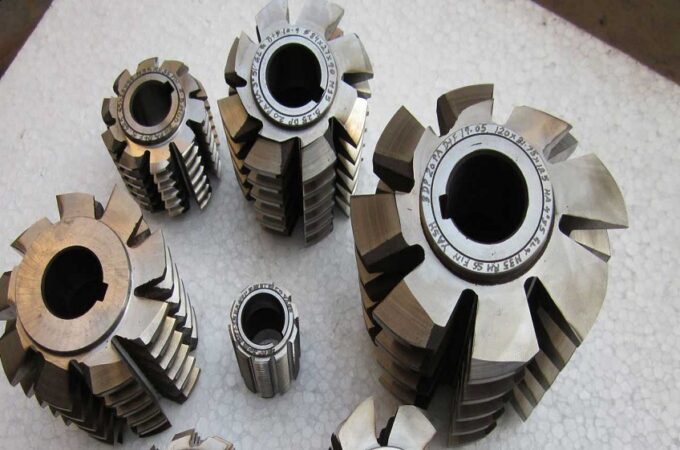
Alternatives to diesel: are there cleaner fuels for trucks?
Transport is one of the sectors with a major impact on air pollution. Diesel fuels are often strongly criticized for emitting a significant amount of pollutants including the famous greenhouse gases (GHG), responsible for global warming. Another major drawback, this time for the user, is that diesel is becoming more and more expensive. Are there cleaner, more economical and truck-friendly solutions? Here are some answers.
Alternatives to diesel: are there cleaner fuels for trucks?
100% vegetable fuel
Launched on November 8 in France by rapeseed producers, the 100% vegetable fuel wants to be displayed as a replacement for diesel. Produced with rapeseed oil, it is already mixed with diesel but cannot be added to more than 10%. Named Oleo 100, the new product offered by the AVRIL group, leader in table vegetable oils (Lesieur, Pujet), does not incorporate any drop of diesel. To use it, there is no need to trade in your truck for a newer truck. This vegetable fuel would indeed be compatible with diesel engines, provided that a few small adjustments are made. If it could not be used for private cars, the objective is indeed to use it to meet the fuel needs of 15,000 trucks or buses in 2022. On the environmental impact side, the use of this fuel would be more environmentally friendly with a 60% reduction in GHG emissions and lower pollution. Its price is not higher than diesel, which makes this solution acceptable to consumers. In France, the overproduction of rapeseed is exported (approximately 5% of the harvest). This could therefore be used for more ecological purposes.
ED95, an approved “green” fuel
ED95 is a fuel composed of more than 90% ethanol. It is part of the transport decarbonation strategy by allowing buses and heavy goods vehicles to run on less oil-based fuel. Its use is very restricted, but the ED95 can be used by all drivers of trucks or buses that traditionally run on diesel, provided that they are not blocked by its few drawbacks. You must first change the diesel engine to a specific engine and then add some chemical additives. Finally, the consumer must also accept having a lower autonomy with half the kilometers traveled per liter. In question: the calorific value of ED95 lower than that of diesel. Reserved for captive fleets that are fed via tanks stored on site, this fuel is not available at petrol stations. Its proponents are counting on a tougher environmental policy on diesel to hope to expand the market for ED95.
Biogas, a substitute for diesel from waste
Highlighted almost everywhere and especially at car shows, biogas could become an alternative to diesel, pending a 100% electric solution. Reducing NOx emissions (nitrogen oxides) by more than 80%, fine particle emissions by nearly 95% and GHG emissions by up to 20%, it is thus displayed as a better student than its historical competitor. . Biogas concretely includes several types of fuels including ethanol (E85 or E100) and methane (Natural Gas Vehicle (GNV) or Liquefied Natural Gas (LNG, liquefied version of CNG). With a price at the pump of around 20 % cheaper compared to diesel, NGV, for example, is particularly interesting for managers of industrial vehicle fleets and road hauliers who have to fight against competition, particularly that of drivers from Eastern European countries. A major asset for the environment, biogas can be produced from organic waste, which makes the carbon dioxide emitted renewable. Finally, the sector is considered mature, and therefore more credible than all-electric.
A fuel made from wheat straw
At first glance, it is difficult to understand how wheat straw can make it possible to drive heavy goods vehicles. And yet, the start-up Global Bioenergies, specializing in so-called “green” chemistry, announced at the start of the year that it had produced isobutene from this agricultural resource. The only company in Europe to develop a process for converting renewable resources into hydrocarbons, Global Bioenergies is now listed on the stock exchange. The isobutene produced can have various applications. In particular, it can be converted into gasoline or kerosene, but also into plastics. Using biological methods to produce light hydrocarbons from agricultural products, the start-up sees a promising future to position its innovation as a solution to prevent the consequences of oil depletion. Various partnerships have already been established, in particular with the car manufacturer Audi.
A water fuel, another amazing alternative
Several projects to find a different way of supplying fuel to vehicles are under consideration. In the Netherlands, the Dutch company Eleqtec has recently entered into a partnership with the Australian-Israeli start-up Electriq~Global. Their goal: to develop a water-based fuel . The stakes are ambitious but the principle of a water engine would be based on that of “L’Oiseau Buveur”. This toy uses the laws of physics to make a plastic bird’s head regularly dive into a glass of water. Difficult for the time being to imagine driving a 38 ton with this type of technology. Answer in a few years…
Do we really need to change fuel to pollute less?
As you will have understood, there are many alternatives to diesel, but it will still take time to create a viable industry for heavy goods vehicles, both in terms of price and energy performance. In the meantime, it is already possible to make a gesture for the environment, but also to save on fuel, for example by adopting eco-driving





